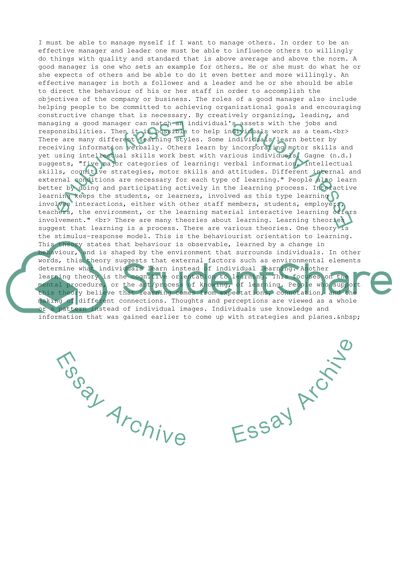Cite this document
(Learning to Manage in Conflict Management Skills Personal Statement, n.d.)
Learning to Manage in Conflict Management Skills Personal Statement. Retrieved from https://studentshare.org/management/1533432-learning-to-manage
Learning to Manage in Conflict Management Skills Personal Statement. Retrieved from https://studentshare.org/management/1533432-learning-to-manage
(Learning to Manage in Conflict Management Skills Personal Statement)
Learning to Manage in Conflict Management Skills Personal Statement. https://studentshare.org/management/1533432-learning-to-manage.
Learning to Manage in Conflict Management Skills Personal Statement. https://studentshare.org/management/1533432-learning-to-manage.
“Learning to Manage in Conflict Management Skills Personal Statement”, n.d. https://studentshare.org/management/1533432-learning-to-manage.


